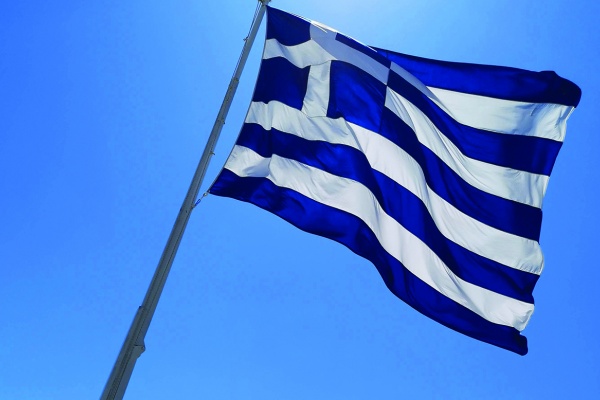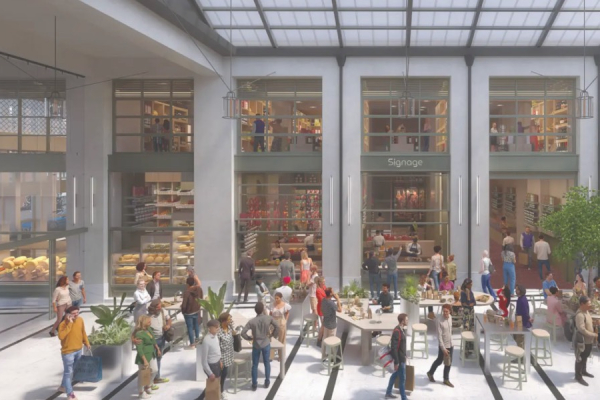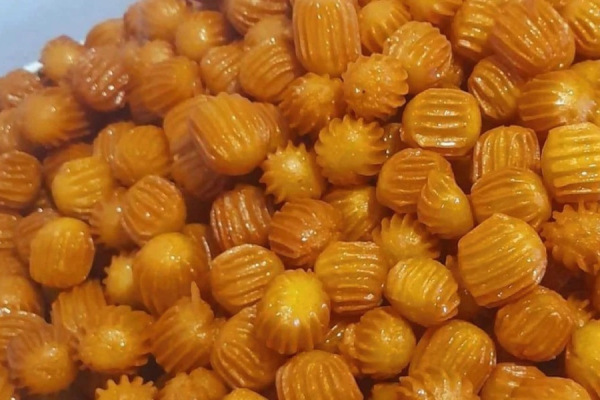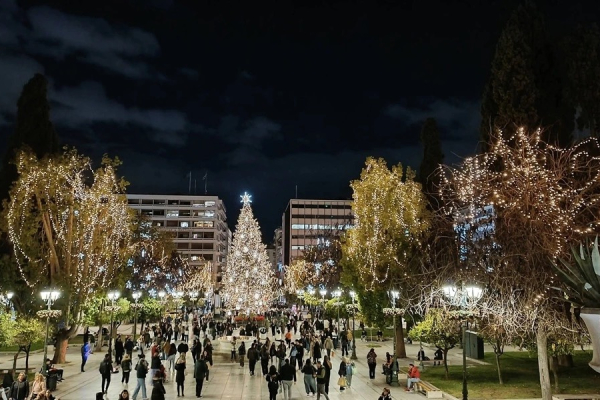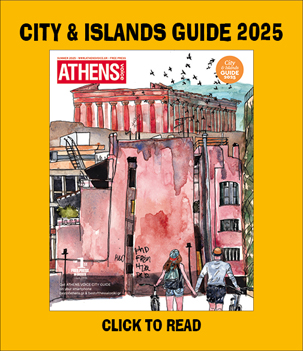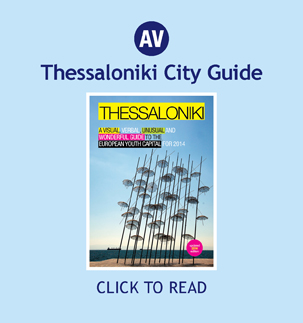by Yiannis Nenes
Associated by most with its long, sunny Greek summer, golden beaches, turquoise waters, traditional food by the sea. But our country is a lot more than this. There is a lot of history and a lot of happening now. Athens, the capital city, overcoming the crisis, is again a buzzing metropolis, a lively hive of creative spirit, with something of interest for all its visitors. There is “joie de vivre” in every corner of it. Below are some useful things to know from the minute you step foot in this wonderful country of contrasts.
The rails on the pedestrian pathway at Makriyiannis Street are the remnants of the old Athenian Tram, which stopped operating in the early 60s.
The underground river flowing underneath Monastiraki Square, some of its parts now exposed in sight, is Eridanos river.
The longest road in Athens is Acharnon street, stretching for about 3 kilometers of length.
The narrowest is Kallipou street, about 2 meters in weidth. It is located between Monastiraki square and Kapnikarea, intersecting Ermou Street.
The name of the English nobleman who removed the marbles of Parthenon is Thomas Bruce, 7th Earl of Elgin.
About 7% of all the marble produced in the world comes from Greece.
The first Athenian suburb was Kolonos. Back in 1853 the population of Athens was 30,000. Today it exceeds 3,5 million.
The Presidential Guard (Evzones) in front of the Greek Parliament building at Syntagma, "rotates" every hour. Facing the building of the Academy of Athens, the statue on the left is Plato and that on the right is Socrates.
The Columns of Olympian Zeus are the remainings of a "gigantic" Temple dedicated to Zeus.
At its time, Olympieion as it was called, it was bigger than the Parthenon, in fact it was the biggest temple in Greece.
The Parthenon’s roof was kept well maintained for more than 2,000 years, until late 17th century, in 1687, when it was bombarded by the Venetians under Francesco Morosini.
The tallest building in Athens, and in the whole Greece, is the "Athens Tower" at Ampelokipi. Its 28 floor-structure go up 103 meters to the sky.
Athens limits buildings to 12 floors so as not to block the view of the Parthenon.
There are 29 cities in the world named "Athens", seven of which are found in the United States.
The world’s third leading producer of olives, the Greeks have cultivated olive trees since ancient times. Some olive trees planted in the thirteenth century are still producing olives.
Sometimes the city of Athens is referred to as The Big Olive.
Greece enjoys more than 250 days of sunshine-or 3,000 sunny hours a year.
ATHENS Could Athens become the new Berlin? The BBC wondered not long ago. The city might look poor in aspects but there is a sexy vibe in it. Industrial spaces have turned into art venues, performance studios, places where much is happening. The hype is art and emerging artists are fleeing from all over Europe. Berlin, maybe not. But shaping its own modern identity, yes!
BROKEN PAVEMENTS and slope warning.Don’t expect properly conserved pavements and roads. So put on your sneakers instead of high heels!
BOUZOUKIA It used to be the ultimate Greek night-out. Large stages, whiskey & flowers thrown to the singer we like – don’ t ask why. Younger Greeks, now, prefer big concerts of tribal, balkan, ethnic beat.
CROSS Older people will cross themselves when passing a church. It’s a common gesture for good luck. Notice many taxi drivers do it too.
DRIVERS They are kind of sloppy. Following the street signs is something of a weak character. So beware.
DERTI “An unrelenting sense of loss or unfulfilled desire”. It’s a word to describe the feeling you get after a heartbreak, a sentiment Greeks love to sing about. Remember, “drama” is also a greek word.
DRUGS Cannabis in Greece is illegal for recreational purposes. In 2017 medical use of cannabis was legalized. If you are found carrying it around (or using it) you will probably get arrested.
EATING in Athens Never fails to please. There are hundreds of great places to eat in every part of the city. You will find a wonderful fusion of traditional and modern greek cuisine. Just be careful of restaurants that seem very ˝touristic”– the food there is usually not the best.
FOUSTANELLA Traditional pleated kilt that comes of the 19th century. It is worn by the guards of the former Royal Palace, Evzones, (meaning the “well-belted” elite soldiers, a term traced in Homer’s times). In Syntagma square, you can take your picture next to them and see
if they blink. Every so often they do a little march to break the monotony of standing still all day and at 6pm you can watch the changing of the guards. Just make sure that you do not stand in their way; they are not allowed to stop for any reason-instead, they can march-kick the obstacles with their pompom shoes.
FRAPPE SOCIETY Frappe coffee is the lifeblood of Greek society. Made with instant Nescafe mixed with water, ice, milk and lots of sugar, a frappe will provide you with the right amount of caffeine for your coffee break, and the right buzz to sip while gossiping and people watching. Now entries are the fredoccino, the frapuccino and everything as long as it’s cold and longto drink. Third wave coffee is also a great preference especially among young people who hang out in new and established specialty coffee shops.
GRAFFITI Athens is considered to be a paradise for graffiti artists, as most of them can go and spray wherever they want, mostly tagging their logos. Still, there are many wonderful wall arts made by creative graffiti artists who have their own colourful way to spray the city.
GREEK COFFEE Unfiltered coffee probably of Arabic/Turkish origin. Served hot in small cups. You drink only the liquid part. Greek coffee has to be made the traditional way that most die-hard old men in coffee shops (cafenéon) follow: boiled on hot sand (“chovoli”). There is a long tradition in old Greece of reading the remains in coffee cups and foretelling the future, a highly prized skill.
HONEY An ancient super food. Hippocrates advised people to eat honey every day in order to live longer. From the early prehistoric times the art of apiculture and honey collection still remains a primary agriculture activity for Greeks. Due to long periods of sunshine, Greek honey is internationally known for its distinct biological and organoleptic characteristics. The abrupt changes of landscape make Greek flora so rich, that 7,500 different species of plants are growing in Greece giving many different flavours of honey, especially
in the region of Attica and Crete. You will want to try thyme honey, which cannot be found anywhere else
in the world.
INTERNET Greece has 3G, 4G+ 5G mobile broadband and Satellite Internet access. Greece also has an extensive fiber optic network throughout the country. Most cafes and restaurants offer free Wi-Fi. Ask for
the password.
IT IS A SMOKER’S PARADISE Smoking is very popular in Greece and still relatively cheap compared to the rest of Europe. Non-smoking signals in bars are not to be trusted. If you are looking for a smoke-free environment, ask the waitress.
JEWELRY SHOPS Everywhere! Greek men don’t wear so much gold like the Italians do. Except maybe, a golden cross their mama gave to them 30 years ago! Greek women love jewels but, most of all, tourists love handcrafted gold since it is inexpensive in Greece but also for its high quality and excellent craftsmanship.
KAFSONAS If you hear this word on the news,be prepared: it means heatwave.
KIOSKS We call them “periptero” and they provide almost anything. Cigarettes, milk, snacks, condoms etc. Some of them stay open 24/7: that’s the best part of it.
KOULOURI Walking around the city, you will spot some men selling this kind of bagel, round pastry coated in sesame seeds. It’s the most healthy snack you can find for a relatively small price (maximum €1,5). It’s the handy breakfast for most greeks, along with the morning coffee.
KEFI/KEFIA Means joy, spirit, passion, happiness, triumph, mojo, excitement, feeling good, having fun, loving life. If we had to choose only one word describing Greece’s values in general, this would be it.
MALAKA The most common address between friends or enemies. Among friends it is used like “dude”. But if the person addressing you with this word looks angry, walk away because you never know!
MOUTZA You may notice that some drivers give an open palm gesture to each other. It’s a kind of an offensive curse of Byzantine, or French, or Venetian origin.
ΝEOCLASSICAL HOUSES Beautiful buildings of the 19th century have survived and they have been renovated. Most of them in the area of Plaka.
OWL Throughout the antiquity, goddess Athena and her companion owl served as city and primary coin type. What made the Athenian silver so popular and long lasting was its status as the definition of good money. The modern Greek one-euro coin features the owl taken from the ancient Athenian four-drachma piece, practically the first coin in the history of Europe. Artist Dimitris Kasdaglis draws owls on peebles hiding them in various places in the city, free for finders keepers.
PALAMAKIA Clapping your hands rhythmically. Apart from showing appreciation, it’s also essential for dancing and having fun the greek way. Old greeks used to clap when they wanted to attract the waiter’s attention in tavernas.
PHILOTIMO Greeks are very proud of this word which cannot be translated. It means “the love of honour”, or "doing good”, and it refers to the concept of respecting values. According to ancient Greek philosopher, Thales, “A Greek is not a Greek without it”.
PUBLIC TRANSPORT The subway (metro) in Athens is relatively new, clean and proper. But it’s far from covering the whole city. The subway’s three lines are line 1 (green), line 2 (red) and line 3 (blue). You can use the train to move from the North of the city to the port, and buses to move in the rest uncovered areas. The latter require patience and good will, because they are rarely on time.
QUEER ATHENS LGBTQ+ crowd is very active in Athens. Gay and lesbian clubs and bars can be found in Gkazi. You can find wild dance floors or quiet places within a kilometer of the metro station “Kerameikos”.
REBETIKA Urban popular songs of the Greeks, especially the poorest, from the late 19th century to the 1950s, similar to the blues culture. The word is connected to the adjective “rebetis”, which means a person connected to some particular subculture.
RELAX The most important part of the Greek coffee ritual. Do a little chit chat, read a newspaper or just stay still thinking about great truths of life. Enjoy.
SANDALS There are quite a lot new designers (Christina Martini and Nikolas Minoglou, London based Marios Schwab for Ancient Greek Sandals footwear label, Zali Sandals, Greek Salad Sandals, Grecian Chick, Zeus+∆ione and DiGaia, Greece Is For Lovers design team) who have updated the classic. Greek leather sandals to a new impressive level. Not just strappy, raw-edged leather flats but contemporary designs combining aesthetics of Ancient Greek sculpture and modern streetwise accessories fashion.
SUPERSTITIONS Greeks have many. The strongest among them is the “evil eye” – If someone looks at you in a bad way, he will “give you the evil eye”, headache and bad luck. That’s why we are very often wearing a small blue charm, for protection. It’s a common Mediterranean thing.
TAXIS They are yellow, they are everywhere and, compared to other international cities, the rates are still cheap. You should always request a receipt for the amount paid, which should also indicate the taxi registration number and the driver’s name. If you do
get overcharged don’t start a fight but report the licence plate to the Tourist police. You can always use Uber, Beat and the TaxiPlon free applications for a ride,if you want to pay by card.
TAP WATER In Greece is fine. And bottled spring water is readily available. Nevertheless, do not pay more than €1 for O,5L of bottled water.
VEGETABLES Famous, well-loved greek summer dishes are made with fresh, ripe vegetables. If you want to buy vegetables, preferably buy them from the farmer’s market (“laiki agora”). Held on various days of the week in neighborhoods throughout the city.
WINE Is traditionally good in Greece and enjoyed in everyday meals. In small, old type taverns, wine is served in kartoutsos (kar-tou-tchos), metal jars in fixed sizes. Many new bohemians consider them to be excellent kitchenware.
WALKING When walking around the city centre, bear in mind that car drivers don’t usually respect the white-line crossings. Never, ever cross a street if the green
light is not on. Also, be careful for pickpockets.
YASSOU It is the a very common salute, meaning “hello”. Address a local like that to steal his heart and have him at hello. It comes from “health to you”.
YAMAS “Health to us all”. It’s the familiar greek way to say Cheers!
ZEIBEKIKO A Greek improvisational dramatic solo dance for men. Its name comes from Zeybeks, people of Asia Minor. The dancer is surrounded by other people, who kneel and clap to him. It is a renowned dance for “mangas”, the macho archetype in the Greek poetry
of masculinity.
“NEVER ON A SUNDAY” Oscar winning music theme for the movie of the same name. The composer, Manos Hadjidakis, is one of the most favorite Greek composers.
THE GREEK DIET It used to be simple: bread, cheese, vegetables, olive oil, wine, and on Sundays fish or pork. Beef was seldom eaten, and sheep and goats were kept mainly for hides, wool, and milk. Nowadays, it’s a Sunday everyday.
GREEK BREAKFAST For many Greeks it consists of a quick coffee, “tyropita” (feta cheese pie) and cigarettes on the move.



